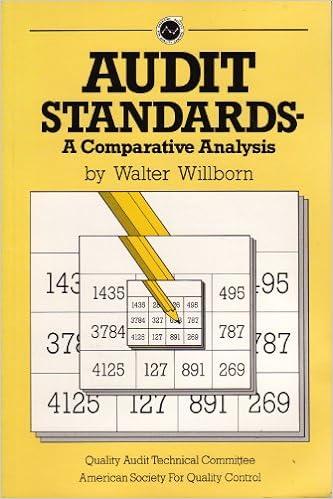Question
Awuah-Asamoah (AA) Co Ltd, a limited liability company, was a growth orientated company that was dominated by its managing director, Mr. Afrifa. The company sold
Awuah-Asamoah (AA) Co Ltd, a limited liability company, was a growth orientated company that was dominated by its managing director, Mr. Afrifa. The company sold quality music systems direct to the public. A large number of sales persons were employed on a commission only basis. The music systems were sent to the sales agents who then sold them direct to the public using telephone sales techniques. The music systems were supplied to the sales agents on a sale or return basis and AA Co Ltd recognized the sale of the equipment when it was received by the sales agents. Any returns of the music systems were treated as re-purchases in the period concerned.
The company enjoyed a tremendous growth record. The main reasons for this apparent expansion were as follows.
Mr. Afrifa falsified the sales records. He created several fictitious sales agents who were responsible for 25% of the company's revenue.
At the year-end, Mr. Afrifa dispatched nearly all of his inventories of music systems to the sales agents and re-purchased those that they wished to return after the year-end.
20% of the cost of sales was capitalized. This was achieved by the falsification of purchase invoices with the co-operation of the supplier company. Suppliers furnished the company with invoices for non-current assets but supplied music systems.
The directors of the company enjoyed a bonus plan linked to reported profits. Executives could earn bonuses ranging from 50% to 75% of their basic salaries. The directors did not query the unusually rapid growth of the company, and were unaware of the fraud perpetrated by Mr. Afrifa.
Mr. Afrifa spent large sums of money in creating false records and bribing accomplices in order to conceal the fraud from the auditor. He insisted that the auditor should sign a 'confidentiality' agreement which effectively precluded the auditor from corroborating sales with independent third parties, and from examining the service contracts of the directors. This agreement had the effect of preventing the auditor from discussing the affairs of the company with the sales agents.
The fraud was discovered when a disgruntled director wrote an anonymous letter to the Stock Exchange concerning the reasons for AA Co Ltd.'s growth. The auditor was subsequently sued by a major bank that had granted a loan to AA Co Ltd on the basis of interim accounts. These accounts had been reviewed by the auditor and a review report issued.
Required
Explain the key audit tests which would normally ensure that such a fraud as that perpetrated by Mr. Afrifa would be detected.
Discuss the implications of the signing of the 'confidentiality' agreement by the auditor.
Explain how the 'review report' issued by the auditor on the interim financial statements differs in terms of its level of assurance from the auditor's report on the year-end financial statements.
Discuss where you feel that the auditor is guilty of professional negligence in not detecting the fraud.
Step by Step Solution
There are 3 Steps involved in it
Step: 1

Get Instant Access to Expert-Tailored Solutions
See step-by-step solutions with expert insights and AI powered tools for academic success
Step: 2

Step: 3

Ace Your Homework with AI
Get the answers you need in no time with our AI-driven, step-by-step assistance
Get Started


